Drug trips, the satanic panic and Nicolas Cage covered in blood: An interview with Mandy director Panos Cosmatos
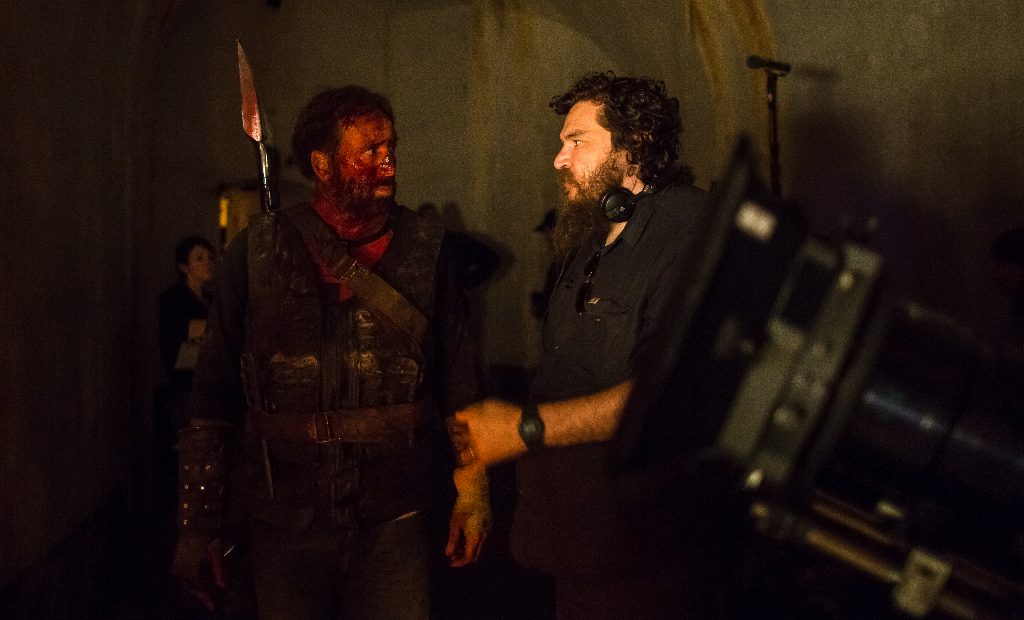
Director Panos Cosmatos’s sophomore feature is a mind-blowing trip of a revenge film set in a fantasy 1983 and starring Nicolas Cage as the tortured hero alongside Andrea Riseborough as the titular character. We caught up with the Italian-Canadian auteur after the film’s Director’s Fortnight screening at Cannes to discuss where the hell this feature came from. Cosmatos possesses a unique talent to explore themes and concepts of a darker nature while remaining lighthearted on a surface level. In a conversation peppered with laughs and good cheer, the filmmaker spoke about the inception of both Mandy and Beyond the Black Rainbow, the process of working on the movies and his general outlook on life and cinema.
I was blown away by your film. I was curious, did you have the idea for the character of Mandy before you thought of the plot or did the general idea of the story come first?
The first notion that the film was based on was the idea of making a revenge movie where the film orbited around the son of the person who was being avenged instead of having them be an element of the past. As that progressed further I decided that the film, even though it takes place in sort of a mythical 1983, is essentially a fantasy-barbarian film – that it would kind of be about the birth of a goddess and then Nicolas Cage would be a sort of a demi-god who does her will on our plane. I started to weave in more and more a sort of suburban mythology like the Tainted Blade of the Pale Knight and the Horn of Abraxos and the idea that these strange artefacts could exist within the mythical version of 1983.
I hadn’t thought of what happens after Mandy’s death as the “birth of a goddess”. Originally I thought those scenes were Red’s dream of her.
I tried with Beyond the Black Rainbow to have the film function on multiple levels so that the audience could choose which levels they want to perceive it on. You can always watch it on a literal level but I think that from the moment when Mandy is reading the novel Secret of the Serpent’s Eye in her house, from that moment on you can sort of see everything that happens from then on as her daydream.
That’s actually really interesting because I wondered if people might accuse the film of suffering from the woman-being-pushed-out-of-the-screen-in-favour-of-a-man syndrome. Was that a concern of yours?
Yeah, that was a concern of mine but I was trying to do something specific with this story and, to me, Mandy is the soul of this film.
The death of your mother was an inspiration for the character. Is this film an entirely personal thing or is there some kind of conversation with the world today happening?
I started writing it so long ago but I felt like as we started getting closer to production and actually started making the film I became very interested in the idea that the villain in this film and the villain in Black Rainbow are these sort of absurd, monstrous male egos. This has always been a very interesting idea to me so when parallels start to pop up in the real world in a very intense way I felt like it started to resonate in a more overt way. I actually tried to bring what’s happening in the world a little more to the forefront.
Did you consciously construct the film as Red’s resurrection story?
To me, the resurrection story is Mandy’s resurrection story. To me, Red is just this sort of animalistic Golem in our world. Not “Gollum” from Lord of the Rings but the mythical Golem. But there’s a lot of my mother in the character of Mandy. I feel like energy-wise, the first film is very much more like my mother and this one had a lot more of my father in it. A deep part of the Mandy character is inspired by my mother who was an artist and who loved nature and who was one of the most creative people I’ve ever know. There’s definitely some of her in the movie for sure. But by the very nature of it, being a barbarian film and everything there’s also more of my father in Mandy than there is in Black Rainbow.
Does any of your father’s work trickle down? You started working on the set of Tombstone right?
I did work on Tombstone.
Do you think this could this be conceived as a modern western?
Like I said, to me it’s a full-on barbarian movie; Nicolas Cage is the Golem and Mandy’s the goddess. Jeremiah Sands is the evil wizard. The chemist is a straight alchemist. They’ve procured all these mythical instruments and power totems. [Red] builds a mythical weapon that’s sort of infused with her power. It almost comes from a very juvenile place. When I’m writing these films I’m trying to tap into a more juvenile state of mind and then infuse it with themes that I think resonate in a more complicated way. I don’t like to be too aware of what I’m doing. I prefer to set up all these pieces and all these colours and then see how they form and interblend with each other. That’s a part of the joy of making a film.
It’s funny you mention joy because it was such a fun experience to watch the film.
I’m glad.
It’s odd to watch all these gory, horrific things happening and to be having fun. So often it’s all about the drama and there’s not a lot of room for –
Pleasure?
Yes! How do you feel about that?
To me, movies are pleasure. Even the darkest movie. The kind of stuff I’m interested in making has dark elements to it but pleasure is a really, really important part of film. I tried to bring that more to the foreground with this one than in Black Rainbow. I actually think of Black Rainbow as an incredibly funny movie but the humour is so my own and so subdued that it maybe doesn’t translate very loudly to many people. [laughs] On this film I made a conscious effort to turn the volume up on the humour so that it wouldn’t become a funeral dirge.
There were so many wild scenes: the chemist and the caged tigers, blood spurting into people’s faces, chainsaws. What was the most fun thing to film?
Some of the most fun stuff to film is pure character moments. Like the scene in the grocery store where Andrea [Riseborough] is working at the counter, that was the first time I really saw Mandy come to life as a person and it was just this electrifying feeling. That moment felt like magic. She’s amazing that way. Also the moment where Nicolas Cage gets sprayed in the face with blood was kind of a magic moment too. [laughs]
Yeah, I certainly did not expect that. But the grocery store scene especially made me think about how attuned we are to the horror of the everyday. I found that to be one of the most disconcerting moments.
Yeah I mean, I live in fear. I’m a very neurotic, anxiety-ridden person who is afraid of a lot… everything. [laughs] I’ve gotten a bit better but this movie and Black Rainbow definitely both initially came out of me at a time in my life when I was crippled with anxiety and fear. That’s definitely in them for sure.
One of my favourite lines of the film was when Nic Cage is in the church with Jeremiah Sands and he says, “psychotics drown, mystics swim”.
That’s Cage’s line. He came up with that.
Brilliant.
Initially his character wasn’t supposed to say anything up until his final line but in my first meeting with Nic when we were talking about all the different character things he just looked at me and said, “psychotics drown but the mystics swim”, and I was like, that’s gotta be in the movie. [laughs]
Incredible. But in general, religion is one of the dimensions in the film. What is your relationship with religion that maybe influenced that?
Well, I’m an atheist. I was raised mildly religious. Enough that I felt the superstitiousness of it creep into my body and spirit and when you live in fear of mystical things that don’t exist, or that I don’t believe exist… [this movie] is a bit of a teenage rebellion against that. It also resonates with the “Satanic Panic” of the 80s being a dimension of that; Dungeons and Dragons and metal were seen as evil, corruptive forces in society. I wanted to make a movie that overtly rejected that kind of moralising. I wanted to make a revenge movie that wasn’t moralistic and that presented the act of revenge in a more mythical way that’s not judged. It’s changed since, but at the time when I first started conceiving Mandy a couple of the more high-profile revenge films that came out had this air of moral repugnance of the act of revenge and that seemed phoney to me. To me, revenge is a purely cinematic act. In reality, it’s one thing but in cinema revenge is one of the purest storylines. It’s a pure driver for things to happen. And on a pragmatic level, it’s a simple set-up, pay-off. I felt put-off by the moralising of those films because it felt disingenuous. It felt like they were being apologetic for what they were making.
Nicolas Cage is a person who’s almost elevated to a mythical status already. Did he enjoy the sort of iconic nature of the role?
I think this film is something that he himself would enjoy watching. It’s sort of in line with his own tastes. He loves crazy, psychotronic phantasmagorical films and it’s rare that he gets to make something like that. But I think this perfectly aligns with his personality. Creatively, we were on the same page from the get-go. I gave him Friday the 13th Part VII to watch and he based his physicality on Jason Voorhees. We played with the idea that for the first act of the film he’s a normal man and then after Mandy dies he transmogrifies into a raw nerve of a more animalistic creature. After he takes the juice from the chemist and has this vision, he becomes a more monolithic titan in the demi-god form.
Let’s shift gears and talk about the music for a second. There are very few moments with no music or scoring; it’s really infused throughout the whole film. Would you say it’s as much [composer Johann] Johannsson’s film as it is yours?
Yeah, for sure. I’m so proud of his score. I think it’s amazingly diverse. It has so many different elements – it has metal and more experimental Throbbing Gristle type stuff or Vangelis elements but I feel like this, of all the scores I’ve heard by him, is the most true to him as an individual. I feel like it expresses more of him as I knew him to be than anything that he’s done before. He told me that this movie was very important to him because he felt like it was an opportunity for him to express all these things that normally it might not be the right place for. It became a lot of the same passions and inspirations from when we were young.
How involved were you in the process of shaping the score?
Very! But it’s a creative conversation with Johann; that’s one of the things I loved about him. Sometimes I would just give him descriptions of smells and scenarios. I would say something like, “I’m in the backseat of my big brother’s car and I’m kind of scared but also excited and it smells like leather and air freshener and a little bit of weed”, and he’d be like, “Ok I got it”. [laughs] Amazing.
We were speaking about Andrea Riseborough a minute ago. Did you have her specifically in mind for the role of Mandy or did you see a lot of actresses?
Nope. She was my first choice. I’ve seen her in Oblivion and also this British television programme called National Treasure – Not the Nicolas Cage movie, that’s just a weird coincidence – and I thought she was amazing in that. Her range is so incredible; she’s like a pure chameleon. I just thought she had the right energy and feel for Mandy. One of the initial seeds for Mandy was [this woman I saw]. When I was a teenager in high school we were on acid once and we drove to this house to buy weed. We went into this apartment complex and there was this woman who was freebasing cocaine. She had long hair and wire-rimmed glasses and she was freebasing cocaine and drawing these amazing, complex and beautiful fantasy scenes that were all over the walls of her apartment. That was one of the initial seeds for Mandy.
One of the initial seeds for Red Miller was [a childhood neighbour]. When I was a kid we lived in a bungalow complex in Guadalajara and one of our neighbours was a plainclothes policeman who looked like 70s Dirty Harry. He rode a Harley and had a chrome-plated Magnum that he’d practise firing into the wall of the complex, which nobody said anything because he was a cop. One evening I was sitting on the grass in front of our bungalow and he came burning around the corner and there was a storm brewing with all these dark clouds rolling in – and lightning! He drove right towards me and peeled out right in front of me and looked down on me while he was wearing shades and lightning is literally striking in the background as he drove off. That always stuck with me and was kind of what I had in mind when I was writing Red.
You can’t make that kind of thing up.
[Smiling] No.
Zoe Tamara
Mandy is released nationwide on 12th October and out on Blu-Ray® DVD and Digital Download 29th October 2018. Read our review from Cannes Film Festival here.
Watch the trailer for Mandy here:


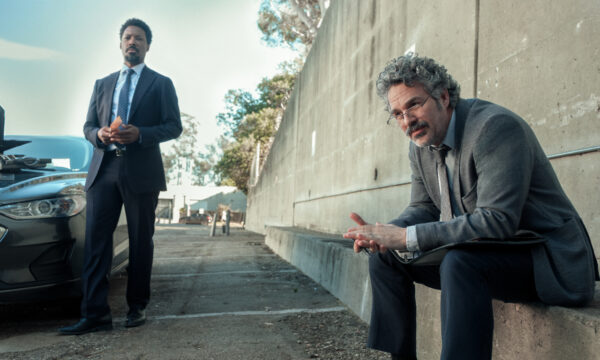
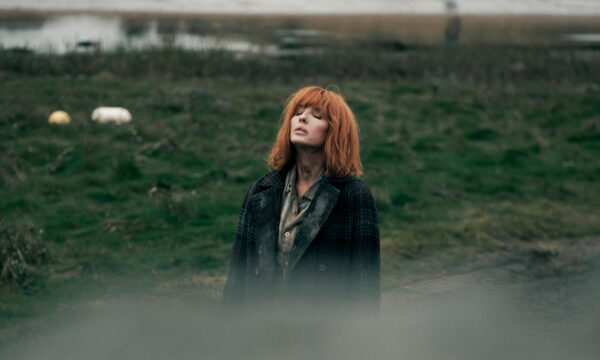
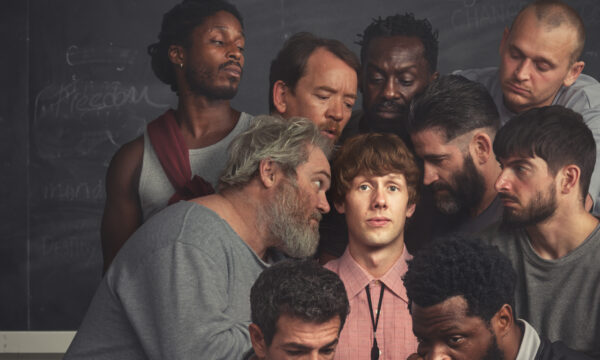
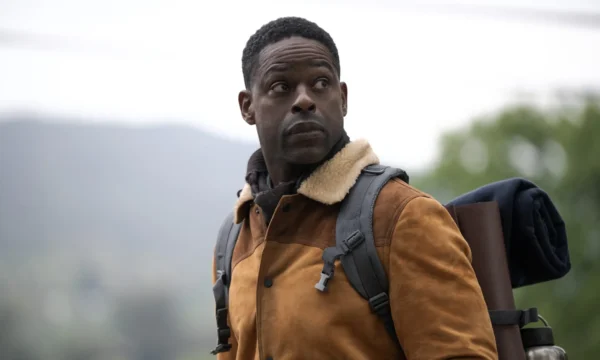
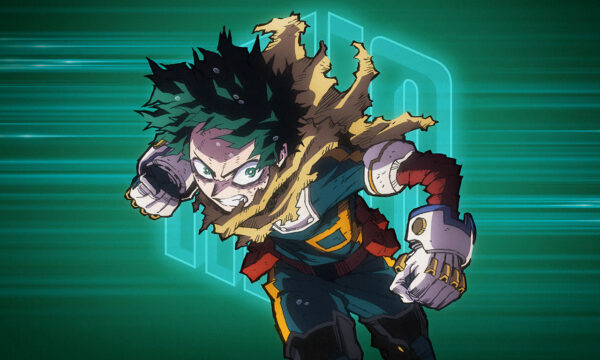
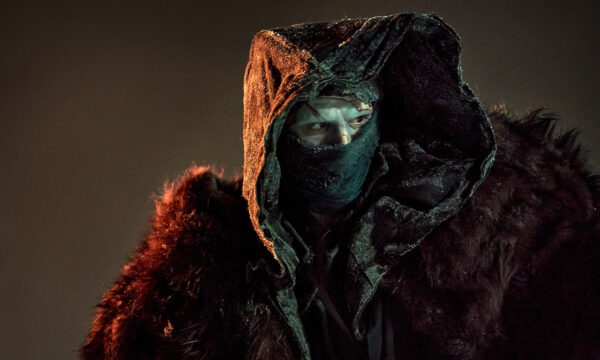
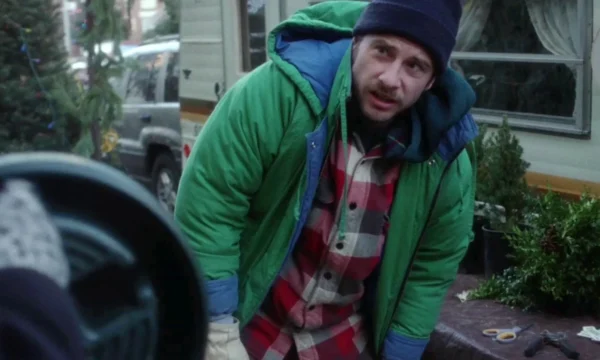
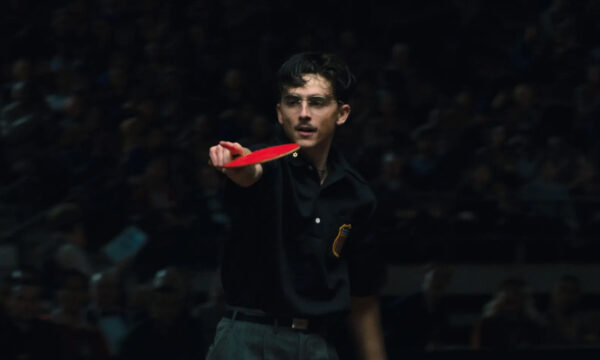
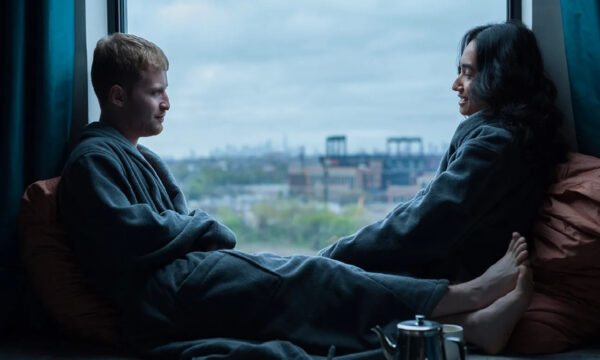
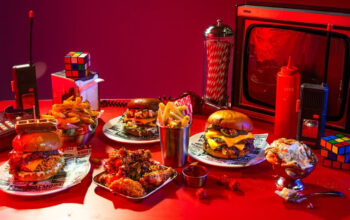
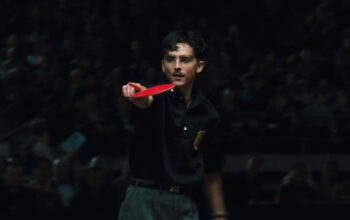





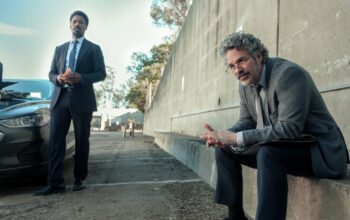
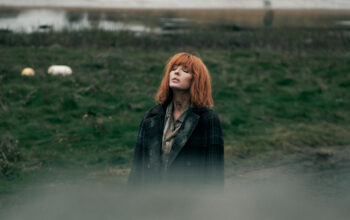


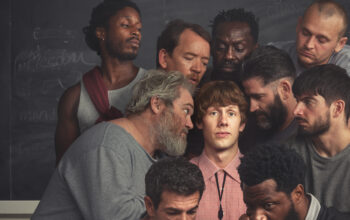
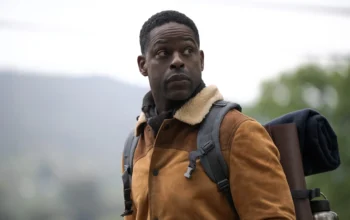
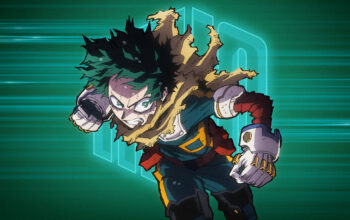
Facebook
Twitter
Instagram
YouTube
RSS